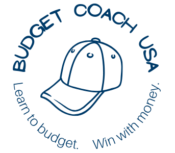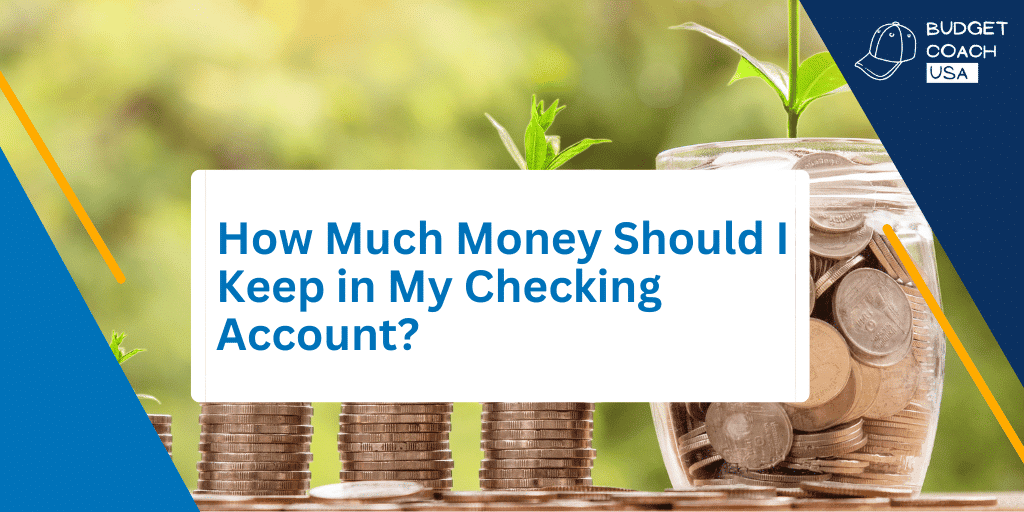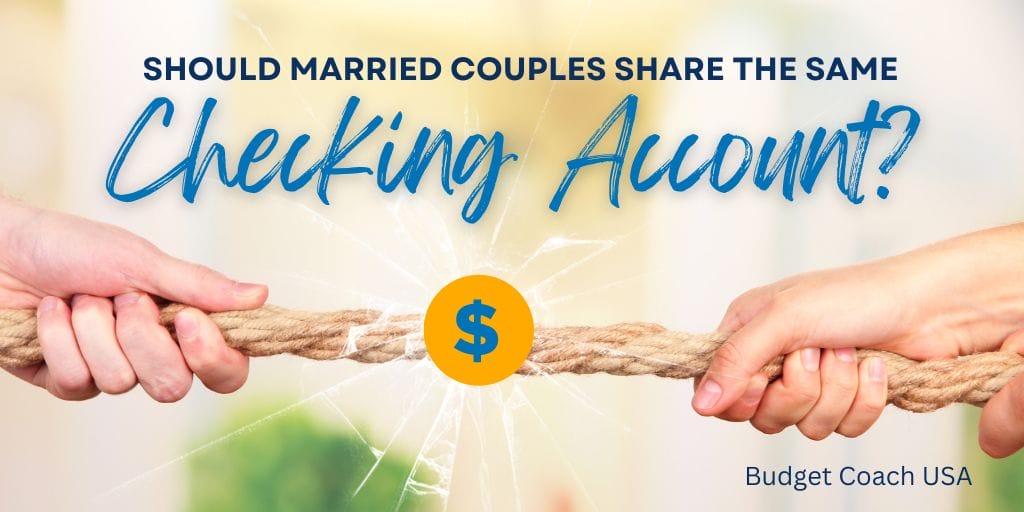Saving money is a goal that many individuals strive for, yet find themselves struggling to achieve. Despite our best intentions, it often feels like an uphill battle to build up a substantial savings account. From unexpected expenses and temptations to the pressure of keeping up with societal expectations, there are numerous reasons why it can be challenging to save money. In this article, we will explore some common factors that hinder our ability to save and provide practical steps on how to overcome these obstacles to achieve financial stability and peace of mind.
We all know people who are “good with money”. But do you know how they pull it off each month? We’ve got three reasons you can’t save money and how you can join the ranks of those who have figured it out.
Why Can’t I Save Money?
1. You Don’t Know Your Numbers
If you don’t know how much money is coming in each month (your income) and you don’t know exactly how much money is going out each month it is not surprising that you can’t save money. To be able to save money, you must first know your numbers. The best way to begin saving money is to start by creating a monthly zero-based budget.
Solution: Create a Monthly Zero-Based Budget
A zero-based budget is a full list of your income and expenses for the month. Your income minus your expenses equals your “margin” and it is your margin that you put to work each month toward your goals…such as saving. A zero-based budget is important because it forces accountability over how you choose to spend every single dollar. You may have tried in the past to “budget” by writing down how much you plan to spend in certain categories for a month, however, if the budget you are creating is only a loose collection of how much you plan to spend it misses a key element: You haven’t weighted it against your income and assigned every dollar of income a job. The dollars of income that are not assigned to a job are likely to walk away, or at minimum, they’ll be directed toward the wrong target. You know that you have assigned every dollar a job when your income minus your expenses equals zero. Zero does not mean that you have no money left, it means that you have no money unassigned to a job. There is a big difference. It means that all the money you earn is pointed toward a goal such as paying bills, saving, investing, and/or paying down debt. When you have assigned a job to every dollar of income, you have forced yourself to put those dollars where you have pre-determined they should go. This is accountability. Get a free zero-based budget pdf template here. Learn how to create a zero-based budget here.
2. You Can’t Control Your Appetite
Spending is an appetite! Appetites left unchecked will only grow. The save money is to control your appetite. Nothing will eat up your monthly margin like ignoring your budget and spending with your emotions. A good reason you can’t save money is because you can’t control your appetite/ spending.
Solution: Learn how to say “no” and live within your budget.
Telling yourself “no” cannot be avoided. So get used to it. If you want to reach your goals, quit living paycheck to paycheck, and save money you’ll have to learn to make yourself and your money behave. This means telling yourself “no” will be required. Budgets by definition are limiting. They have boundaries. And if you are going to live within limits and boundaries, you’ll have to understand that “no” is part of the process.
Choose what you want most over what you want now. Control your appetite and stick to your monthly budget.

3. You Need More Income or Less Expenses
Remember, saving money is about creating as much margin as possible. To save money you’ll first you need to know your numbers by creating a monthly zero-based budget. This includes your income and your expenses. Second, you’ll need to control your appetite and say “no” to desires that do not fit into your budget. If you have a budget and your spending under control and you still need more margin to save money then you’ll need to look for ways to increase your income or further reduce your expenses.
Solution: Revisit your budget and look for ways to reduce your expenses or increase your income.
- Consider a side hustle in the evenings or weekends so that you can save money.
- Revisit your budget and look for additional ways you can save more money from your salary.
How Can I Save Money?
1. Create a monthly zero-based budget
If you don’t know how much money is coming in each month (your income) and you don’t know exactly how much money is going out each month it is not surprising that you can’t save money. To be able to save money, you must first know your numbers. The best way to begin saving money is to start by creating a monthly zero-based budget. Here are some more reasons to create a budget.
A Budget is Freedom
A budget is freedom. Most people think of a budget as something that is too restrictive; almost like it is a big stop sign. They think once they are on a budget, they’ll have to say no to all the good stuff in life and kiss fun goodbye, right? Not exactly. We think of a budget as the exact opposite. A budget is freedom. Yep, you read that right. Freedom.
A budget is telling your money you are in charge. And once you are making your money behave all that worrying about loss of freedom actually turns into the control you’ve been missing. Being in charge and being in control doesn’t sound restrictive to me. It actually sounds a lot more like freedom.
A Budget is the Pillar of Financial Control
A budget is the pillar of financial control. It is an indispensable part of money wisdom. If your spending is out of control, you need a budget. In fact, you need a budget regardless. Simply put, a budget is the assignment of your dollars before the month begins. Each dollar of income is organized on paper according to the places you plan to spend (or save) it. A budget is a written plan for your money before you receive it. A budget is the pillar of financial control.
A Budget is Telling your Money Where to Go Before Wondering Where it Went
According to author John Maxwell and often repeated by Dave Ramsey, “a budget is telling your money where to go before wondering where it went”. A budget helps you organize your money so you can win with money. A budget helps you visualize where to allocate your money so you can see what winning looks like on paper.
A Budget is the Assignment of Your Dollars Before the Month Begins
A budget is when you tell your money, in advance, where it is going to go and what job you want it to do. If you are going to win with money, you need to do the little things right. Make your budget before the month begins.
A Budget is Telling Your Money You Are in Charge.
A budget is you taking charge of your money. A budget is telling your money where it is going to be spent, what it is going to be spent on, and when. When you plan your money in advance, take charge of it, and make it behave, it is less likely to be spent on something that you didn’t need.
A budget is How You Win With Money
Your money will walk off if you don’t take charge. Winning with money is achieved through a budget and on purpose. Remember the freedom you want? A budget is the freedom to spend when the time is right. A budget is how you win with money.
2. Learn How to Say “No”
Telling yourself “no” cannot be avoided. So get used to it. If you want to reach your goals, quit living paycheck to paycheck, and save money you’ll have to learn to make yourself and your money behave. This means telling yourself “no” will be required. Budgets by definition are limited. They have boundaries. And if you are going to live within limits and boundaries, you’ll have to understand that “no” is part of the process.
Choose what you want most over what you want now. Control your appetite and stick to your monthly budget.
3. Find More Margin (if needed)
If you are using and living within a monthly zero-based budget and you still need to save more money, then you’ll need to find ways to create more income or further reduce expenses.
- Consider a side hustle in the evenings or weekends so that you can save money.
- Revisit your budget and look for additional ways you can save more money from your salary.

7 Steps to Financial Wellness
- Save a starter emergency fund of $1,000 as fast as you can.
- Pay off your debt. Start by listing all of your debts except for your mortgage. Put them in order by balance from smallest to largest—regardless of interest rate. Pay minimum payments on everything but the little one. Focus on that one until it is gone. Then take that payment and put it toward the second-smallest debt, making minimum payments on the rest. That’s what’s called the debt snowball method, and you’ll use it to knock out your debts one by one until you are debt-free except for the house.
- Save a full emergency fund of 3 to 6 months of household expenses
- INVEST 15% of your gross income toward retirement.
- CONTRIBUTE to children’s college education fund.
- PAY off the house early.
- Build wealth and be generous.
Note: Steps 4,5 & 6 are worked on at the same time.







